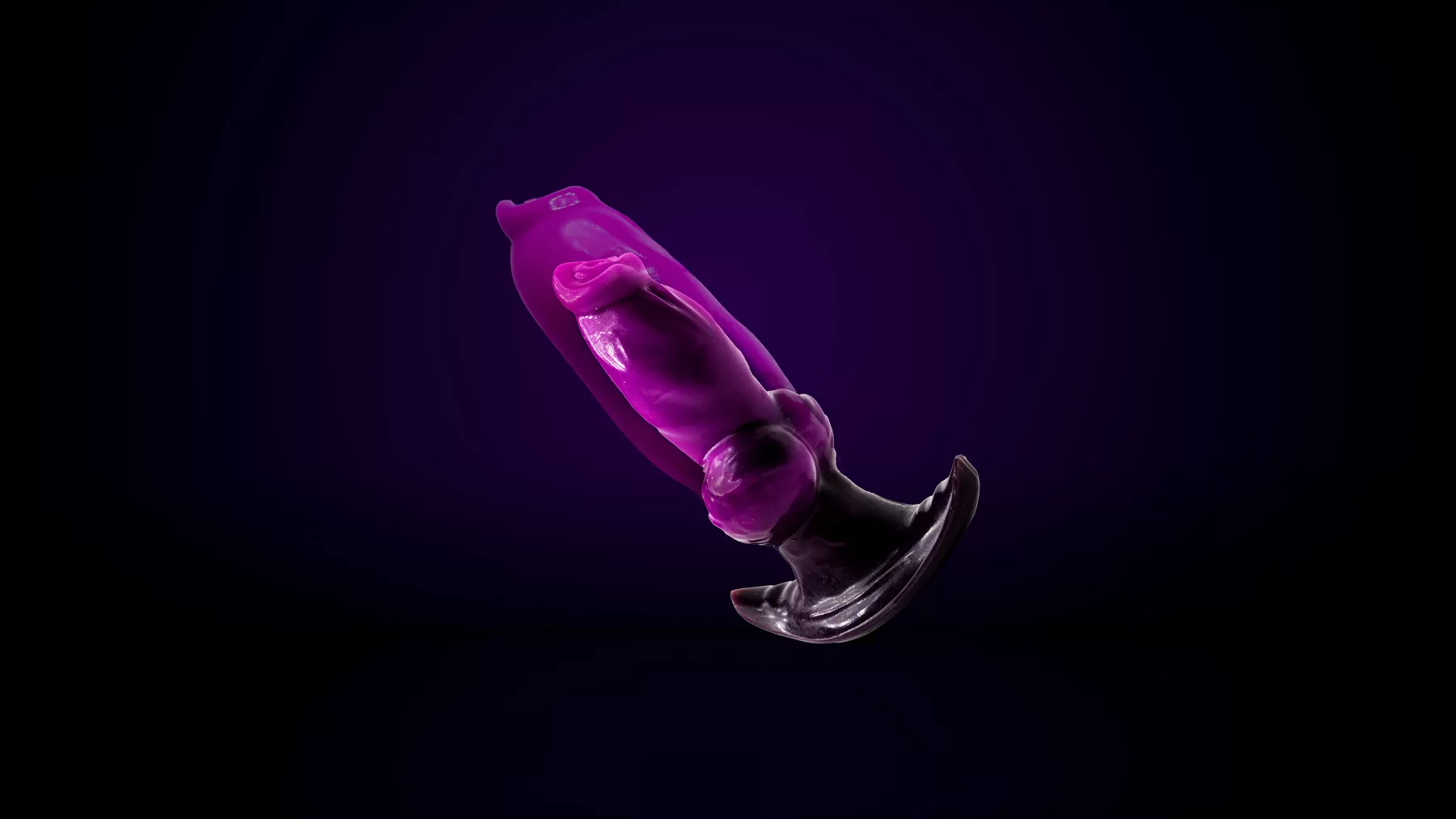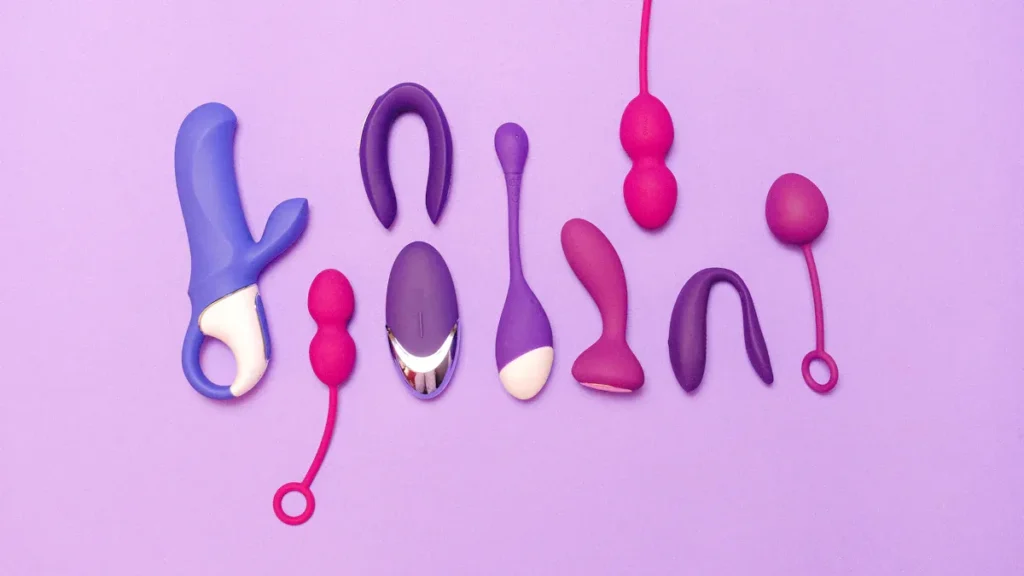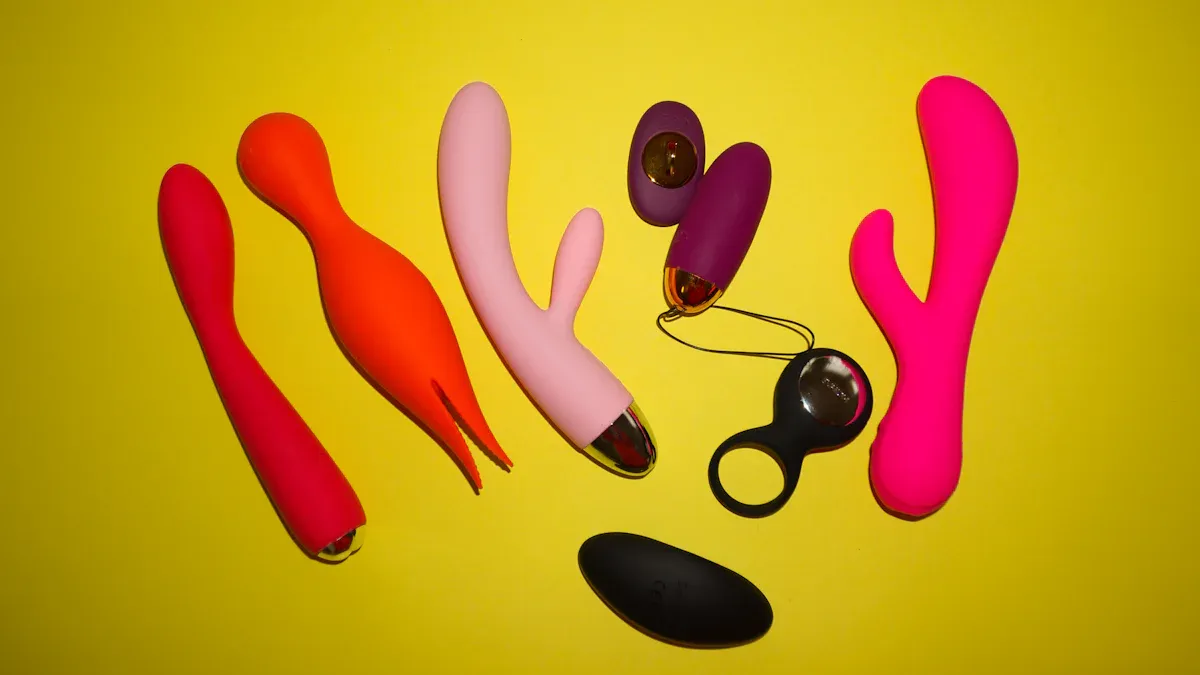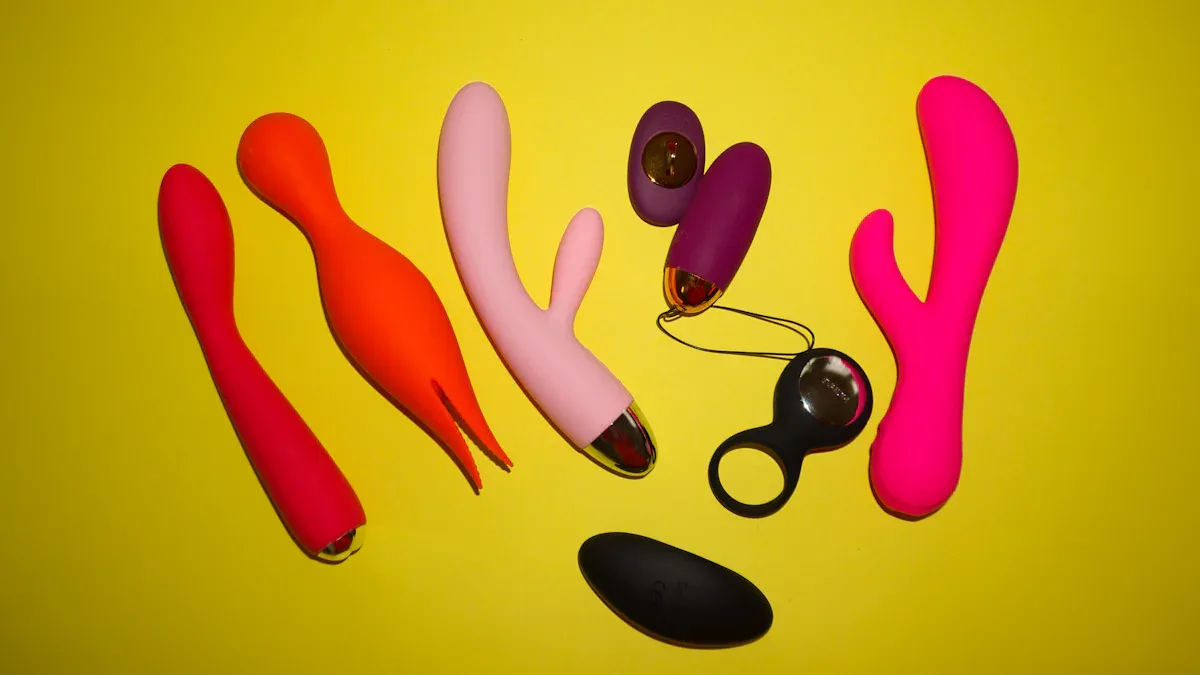Are PVC Dildos Safe to Use in 2025
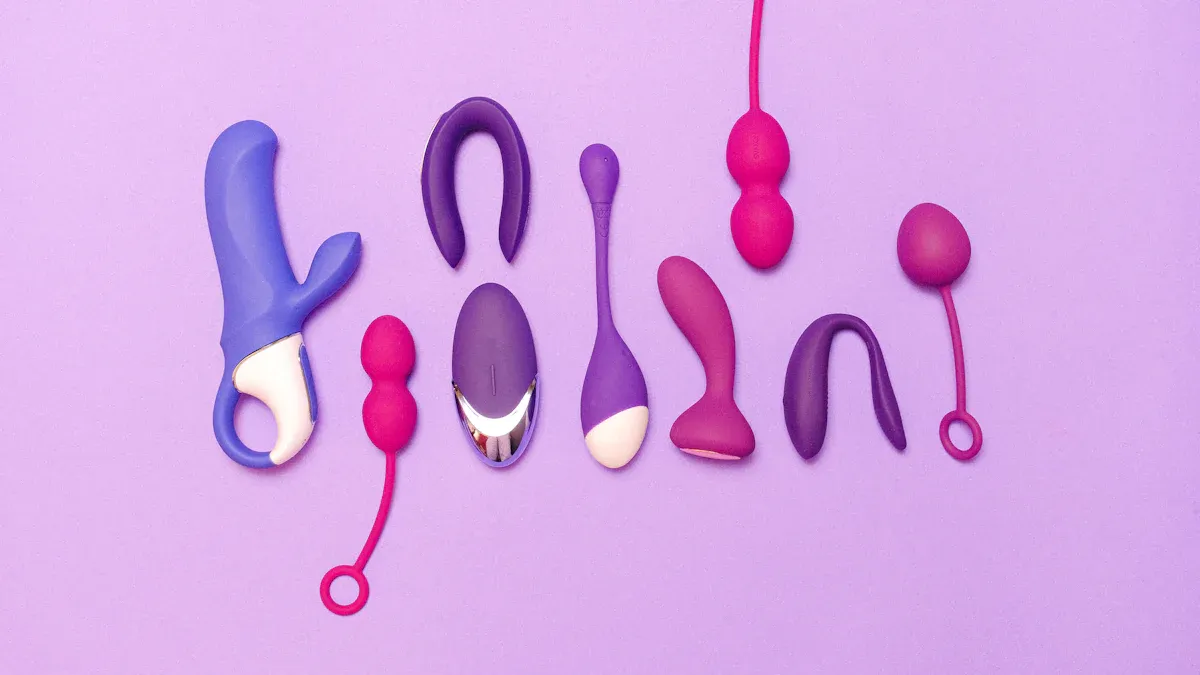
You might ask if PVC dildos are safe to use in 2025. Many adult toys, like Suction Cup Dildos, cumming dildo, and Finger Dildos, are made from PVC. People still worry about safety because PVC dildos can let in chemicals and germs. Here are the main health problems linked to using PVC dildos:
Health Concern | Explanation |
|---|---|
Porosity of PVC | Germs and fluids can get trapped inside, so infection risk goes up. |
Phthalates Exposure | Chemicals in PVC can mess with hormones and hurt sexual health. |
Mold Growth | Mold can show up as dark spots, which makes health risks higher. |
Picking safe adult toys helps keep your sexual health and well-being safe.
PVC Dildos and Safety
What Is PVC
Many adult toys are made from PVC. PVC means polyvinyl chloride. It is a kind of plastic. Companies use it because it is cheap and easy to shape. PVC dildos come in many colors and sizes. PVC can be soft or hard. This depends on what chemicals are added. Some pvc sex toys bend a little, but they are not as soft as silicone.
PVC is used for adult toys because:
It does not cost much to make.
It can be shaped in many ways.
It is simple to color and decorate.
But pvc sex toys often have phthalates. These chemicals make PVC softer. Phthalates can be bad for your health. PVC is also porous. This means germs and fluids can get stuck inside. You should keep pvc dildos in cool, dark places. Put soft pvc sex toys in their own bags to keep them safe.
Why PVC Dildos Raise Safety Concerns
People worry about pvc dildos for a few reasons. The main worry is about the materials and chemicals inside. PVC sex toys can have harmful chemicals like lead, chlorine, and mercury. These can leak out over time. When you use a pvc dildo, your body might take in some of these chemicals.
Many health experts say pvc sex toys are risky. The U.S. government does not allow PVC in kids’ toys because of these dangers. Big medical groups have warned about the health risks. Animal tests show that PVC can cause cancer and trouble having babies. Phthalates in pvc dildos can hurt your hormones and harm sperm.
Tests in Europe found some pvc sex toys with lots of bad chemicals. One company stopped making a dildo after it did not pass safety tests. Some adult toys now have fewer banned chemicals, but there are still risks. Dildos touch sensitive body parts, so pvc sex toy safety is very important.
Health Risks of PVC Dildos
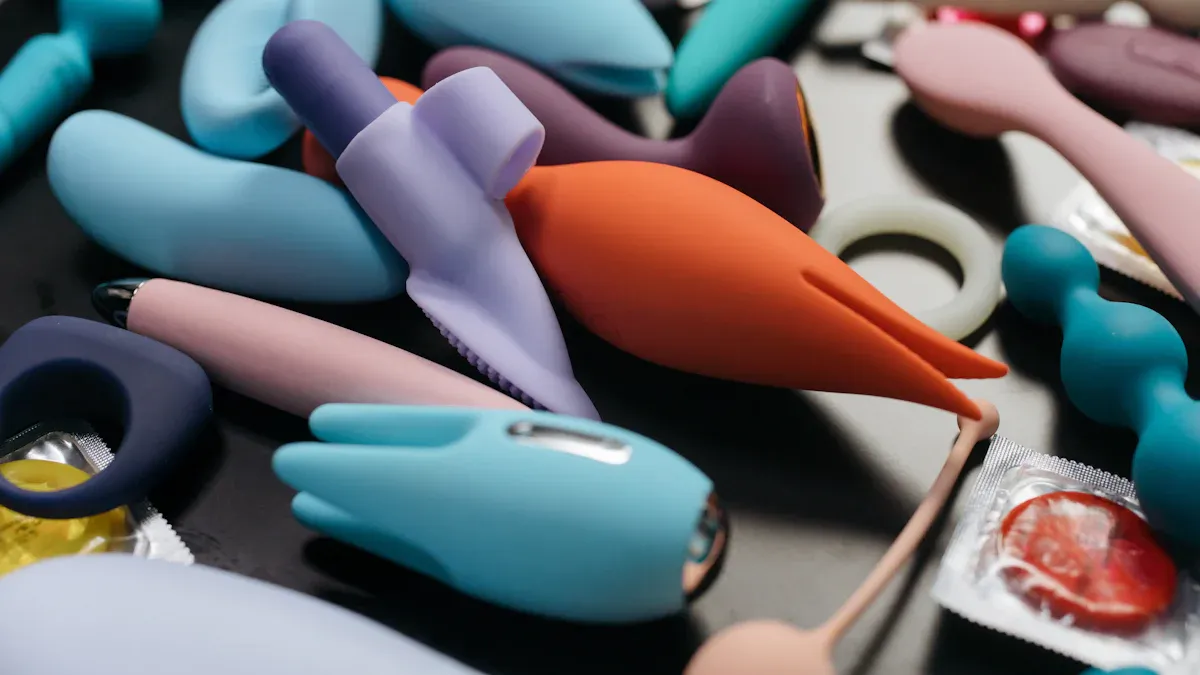
Phthalates and Chemical Exposure
When you use pvc dildos, you might not know they have phthalates. Phthalates are chemicals that make plastic soft and bendy. Many cheap pvc sex toys have these chemicals. Phthalates can come out of the dildo when it touches your skin. This happens more on soft or sensitive areas. Some common phthalates in pvc sex toys are Di-n-octyl phthalate (DnOP), Diethylhexyl phthalate (DEHP), Benzyl butyl phthalate (BBP), and Dibutyl phthalate (DBP).
Phthalate Name | Where Found | Health Risks |
|---|---|---|
DnOP | Many adult toys | Endocrine disruption, fertility problems, cancer risk |
DEHP | Common in dildos | Liver, testes, and thyroid toxicity, reproductive harm |
BBP | Detected in sex toys | Reproductive and developmental toxicity |
DBP | Detected in sex toys | Carcinogenic potential, reproductive harm |
Phthalates can mess up your hormones. They may cause trouble with having babies. They can also make it harder to stay healthy during pregnancy. Some phthalates can even raise your chance of getting cancer. Some pvc sex toys have other bad chemicals too. These include trimethyltin chloride and toluene. These can hurt your nerves and your ability to have kids. If a dildo smells very strong, it might have unsafe stuff in it. Experts say pvc can mess with hormones and cause skin problems. It can also cause health issues that last a long time. Even if a label says “phthalate-free,” you should still check what is in it. Some toys might still have other harmful chemicals.
Tip: To stay safer, pick adult toys made from medical-grade silicone, glass, or stainless steel.
Porosity and Bacterial Growth
PVC sex toys have tiny holes you cannot see. These holes let germs and fluids get inside the toy. When you wash the toy, you only clean the outside. Bacteria, mold, and viruses can hide deep inside. This makes it hard to get pvc dildos really clean.
A study showed that even after washing, more than half of pvc toys still had viruses like HPV. Toys made from silicone or glass did not have this problem. Because of this, you can get infections more easily with pvc toys. Experts say not to share pvc sex toys. Always use a condom with them to help stop germs from spreading. Porosity is a big reason why pvc is riskier than body-safe materials.
PVC dildos:
Hold germs and fluids inside
Cannot be boiled or bleached to clean deeply
Make infections and skin problems more likely
Color Changes and Degradation
You should look at your dildo for any changes. PVC sex toys can change color, crack, or feel sticky as they get old. These changes mean the toy is breaking down. When PVC breaks down, it can let out more bad chemicals. It can also break into tiny plastic bits. This can make health risks worse and cause skin or allergy problems.
If you see cracks, color changes, or a weird feel, stop using the toy. These signs mean the toy is not safe anymore. Using a broken toy can let more bad chemicals touch your skin. It can also make infections more likely. Experts say you should get a new toy if you see these signs. This helps keep you healthy.
Note: Pick body-safe materials and check your toys often for changes. Your health and safety are most important.
Phthalate-Free PVC: Is It Safer
What “Phthalate-Free” Means
You might see sex toys that say “phthalate-free.” This means the toy does not use phthalates. Phthalates are chemicals that make plastic soft and bendy. These chemicals can cause health problems. They can change your hormones and make it hard to have babies. Some laws, like the CPSIA, limit phthalates in kids’ stuff. But these rules do not cover adult toys. No law makes companies prove their “phthalate-free” claims for sex toys. Many companies use this label to help sell more toys. But you cannot always believe it. Some toys that say “phthalate-free” might still have other bad chemicals. Companies often call their toys “novelty items” to skip strict rules. You should know that “phthalate-free” does not always mean the toy is safe.
Note: Buy from brands you trust if you want to be safer. Labels alone do not make a toy safe.
Ongoing Risks of Phthalate-Free PVC
You may think phthalate-free pvc is safer. But it is not that simple. The sex toy industry does not have strong rules about chemicals. When companies take out phthalates, they use other chemicals instead. These new chemicals are not always better. Some common ones are DEHT, DINCH, Epoxidized soybean oil (ESBO), Trimellitates (TOTM), and Acetyl tributyl citrate (ATBC). Some brands use special softeners like Hytrel® by Dupont. Others use chemicals like Bisphenol A or similar ones. These can also hurt your health.
Problems with phthalate-free pvc:
Companies do not always say what chemicals they use.
PVC can still be risky because it has chlorine.
The toy can still have tiny holes that trap germs.
Some new chemicals may also cause health problems.
Even if a toy does not have phthalates, it can still break down. It can let out other bad stuff. You should be careful and pick toys made from body-safe materials like silicone, glass, or metal.
Safer Alternatives to PVC Dildos
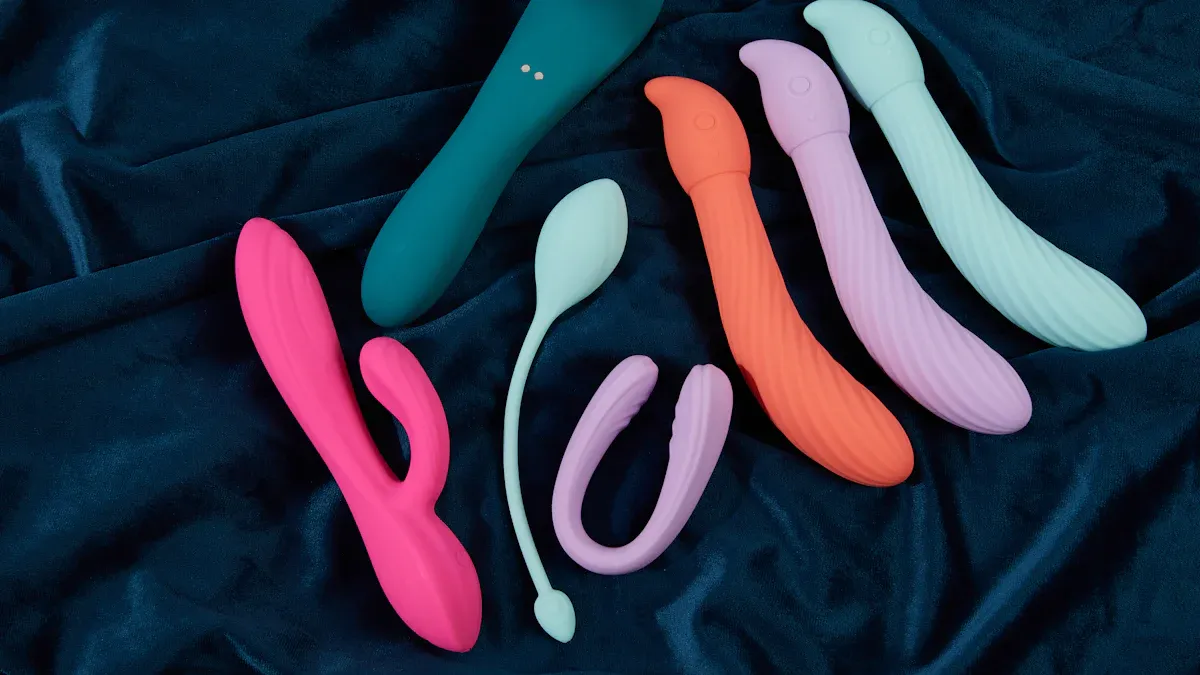
Medical-Grade Silicone
Medical-grade silicone is a great choice instead of pvc sex toys. Silicone dildos are safe for your body and do not have tiny holes. Germs and bacteria cannot hide inside them. You can wash silicone dildos with soap and water. You can also boil them to make them extra clean. Medical-grade silicone does not usually cause allergies or skin problems. Experts like silicone sex toys because they do not have bad chemicals. They do not have phthalates or heavy metals. Silicone dildos last a long time and stay soft. They are good for people with sensitive skin. Using silicone sex toys helps you avoid infections and bad chemicals.
Tip: Buy silicone dildos from brands you trust. Pick toys that meet FDA or European safety rules. These toys use safe silicone and do not have unsafe fillers.
Glass and Metal Options
You can also use glass sex toys or stainless steel toys. These materials are safe for your body. Glass and metal dildos do not have tiny holes, so germs cannot get inside. You can boil them or put them in the dishwasher to clean them. Glass dildos made from medical glass are strong and smooth. Always check for cracks before you use them. Stainless steel toys are tough and simple to clean. They do not break or chip. You can warm or cool them for different feelings. These toys feel firm and are good if you want something different from silicone.
Glass and metal dildos:
Do not have phthalates or other bad chemicals.
Are simple to clean and make germ-free.
Can last many years if you take care of them.
Why Switch to Safer Materials
People pick safer toys to keep their bodies healthy. PVC dildos can have phthalates and other chemicals. These can mess with hormones, cause rashes, or lead to infections. PVC toys are hard to clean and can cause hygiene problems. If you use sex toys made from silicone, glass, or stainless steel, you avoid these risks. Silicone, glass, and steel toys are all safe for your body. They are easy to clean and do not fall apart over time. Experts say safer toys help you enjoy yourself without worrying about health.
Picking safe, nonporous toys helps you feel better and safer.
PVC Dildo Safety Tips
Using Condoms for Protection
You can lower your risk of infections by using condoms with pvc sex toys. A condom acts as a barrier between your skin and the dildo. This helps keep germs and chemicals away from your body. If you share adult toys with a partner, always use a new condom each time. You should also use a condom if you switch the dildo between different body parts. This simple step makes your play much safer and more hygienic. Condoms also help protect you from any chemicals that might leach out of the dildo during use.
Tip: Choose non-lubricated condoms for easier cleaning after use.
Cleaning and Storage
Keeping your pvc sex toys clean is key for good hygiene and health. Follow these steps to care for your dildo:
Wash your dildo with soap and water after every use. Rinse off all soap to avoid skin irritation.
Dry the dildo completely before storing it. This stops mildew and bacteria from growing.
Disinfect your dildo if you use it with different partners or body parts. Use body-safe disinfectants like 70% alcohol or a 10% bleach solution. Always rinse off any disinfectant before use.
Store your adult toys in a cool, dry place away from sunlight. Place them on a smooth, hard surface to prevent damage.
Avoid using oils or silicone-based lubricants with pvc sex toys. These can break down the material and make it unsafe.
Buy adult toys from trusted brands to reduce your exposure to harmful chemicals.
PVC dildos do not last as long as silicone or glass. Replace your dildo if you see cracks, color changes, or if it feels sticky. These signs mean the toy is no longer safe and could cause infections or irritation.
Recognizing Signs of Irritation
Pay attention to your body when using pvc sex toys. If you notice redness, itching, burning, or swelling after using a dildo, stop right away. These signs may mean you have an infection or a reaction to chemicals in the toy. If symptoms do not go away, talk to a healthcare provider. Good hygiene and regular checks help you stay safe and enjoy your adult toys without worry.
Note: Your health and safety matter most. Always choose hygienic practices and replace your dildo at the first sign of wear.
PVC dildos can expose you to chemicals and germs that may harm your health. Even if a dildo says “phthalate-free,” you cannot trust it to be safe. Experts do not recommend using PVC dildos in 2025. You should choose adult toys made from silicone, glass, or metal for better sexual health. If you still use a PVC dildo, always use a condom and check for signs of damage. Your safety matters most when picking adult toys.


